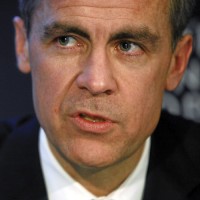
During a Treasury Select Committee (TSC) hearing, Carney came under fire from TSC member Jacob Rees-Mogg MP for making speculative comments about EU membership.
Rees-Mogg said comments made by Carney in a letter to TSC chairman Andrew Tyrie MP outlining how EU membership affects the Bank’s ability to achieve statutory objectives, had undermined the reputation of the Bank.
The MP disputed Carney’s assertions that Britain’s buoyant foreign direct investment and ‘dynamic’ economy was a result of its membership in the single market.
He added that while Carney had sufficiently outlined the risks of leaving the EU, the governor’s letter had “a slight absence” of risks to remaining in the EU.
Rees-Mogg said: “This is what I think is doing your reputation and the Bank of England’s reputation harm; you are coming out with the standard statements of the pro-EU group. The figure for foreign direct investment in 1970 was that the UK received more than France and Germany combined, before we were a member of the European Union.
“The statements you make about the dynamism of the economy could just as well refer to the reforms introduced by Margaret Thatcher, it is speculative and beneath the dignity of the Bank of England to be making speculative pro-EU comments.”
Carney hit back at the MPs comments, responding: “I am not going to let that stand” and adding that he was “very confident” on the grounding of his point made about foreign direct investment.
He added that leaving the EU in the short term would create difficulties for the UK economy.
“The situation could bring some challenges to financial stability,” he said.
“It is a material financial stability risk. The issue is the biggest domestic risk to financial stability because in part due to the issues around certainty, but also because it has the potential to amplify risks around housing, market functioning and also associated risk with respect to the euro area.”
Carney added that foreign banks with headquarters in London could look to move elsewhere in a Brexit scenario.
He said: “One would expect some activity to move, certainly there’s a logic to that and there are views that have been expressed publicly and privately by a number of institutions that they would look at it. I would say that a number of foreign institutions with their headquarters in the UK are contingency planning for that possibility.”
















